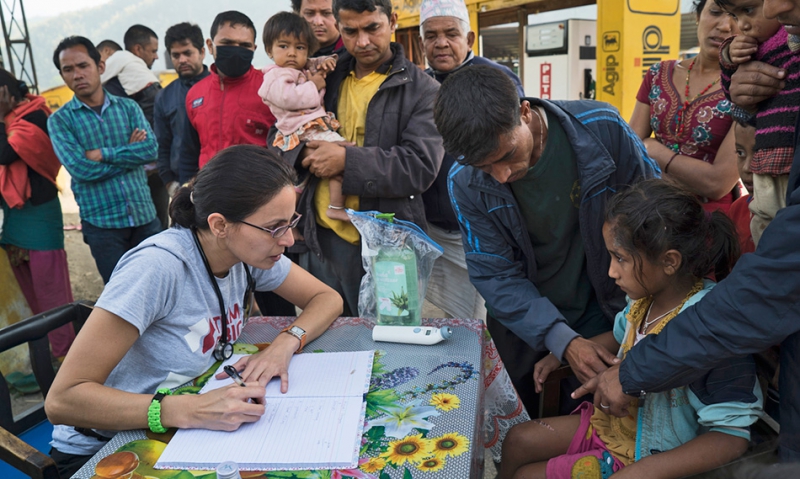
Team Rubicon, which works with the Legion to help after disasters hit the United States, exports its services to international disaster area.
More than 40 members of Team Rubicon, including several U.S. and British veterans, are in Nepal helping treat the casualties of the 7.8 magnitude earthquake that struck the country April 25.
Team Rubicon deployed a reconnaissance unit to Katmandu April 26 that was equipped with aerial drones to help assess damage to large portions of the country that are unreachable because of the devastating earthquake. That assessment team included a Nepalese-American physician.
Operation Tenzing has grown to include doctors, nurses, paramedics, linguists, and other former military personnel and civilian volunteers associated with Team Rubicon, which also has united with the America Nepal Medical Foundation to provide emergency medical aid to the local population, and is delivering food and clothing to outlying villages that are not yet receiving care.
Comprised primarily of Post-9/11 veterans, Team Rubicon has worked with The American Legion on disaster recovery and relief efforts throughout the United States for the last five years. Several Team Rubicon volunteers also are members of The American Legion and work with the Legion to distribute National Emergency Fund disaster compensation to affected veterans and families.
Former Marines Jake Wood and William McNulty founded Team Rubicon after Wood organized volunteers to go to Haiti in the wake of the magnitude-7 earthquake in January 2010. The volunteers operated a makeshift emergency room in the courtyard of Port-au-Prince’s largest hospital and treated thousands of Haitians.
Team Rubicon has since dispatched volunteers to help communities dig out after tornadoes, hurricane, floods and other disasters across the United States and around the world. The group is known for responding quickly and bridging the gap between the time a disaster strikes and more established aid groups are able to respond. Team Rubicon stands out among disaster relief groups in that any portion of a donation not spent directly on disaster relief is either returned to donors or used for future missions.
Team Rubicon also has the capability to deploy teams to different disasters at the same time. For example, Team Rubicon volunteers headed to northeast Texas to helping people hit by a series of tornados that also struck on the same day as the Nepal earthquake. Forty Team Rubicon volunteers have logged more than 1,260 hours as part of Operation Lonesome Dove in Texas.
- Emergency

